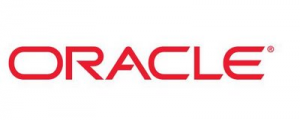Amendment to Act No. 93/2009 Coll., on auditors
23.06.2009Company: Amcham
Amendment to Act No. 93/2009 Coll., on auditors
In this newsletter, we would like to inform you of an amendment to the Act on Auditors which, although not appearing to have much in common with a company’s accounting, is still worth mentioning due to a new procedure regarding the appointment of statutory auditors.
Section 17 of the Act on Auditors – ‘Appointing an auditor and entering into a statutory audit agreement’ – stipulates the obligation of an accounting entity to have its statutory auditor appointed by the entity’s supreme body. This obligation has been applicable to all agreements entered into since 14 April 2009.
What does this obligation refer to specifically?
The obligation applies only to statutory audits of financial statements and consolidated financial statements (required under Section 20 of Act No. 563/1991 Coll.), i.e. mandatory statutory audits, undertaken by any accounting entity that fulfils the following criteria:
Total assets exceeding CZK 40 million (gross assets)
Annual net turnover exceeding CZK 80 million
Average number of staff over the accounting period higher than 50
Joint stock companies must fulfil any (at least one) of the above criteria in two consecutive accounting periods; other companies must fulfil two of the above criteria in two consecutive accounting periods.
Auditing activities not subject to the above obligation include voluntary statutory audits, audits of consolidation packages for parent companies, inspections, etc.
The supreme bodies of different accounting entities are:
Joint stock company – general meeting
Limited liability company – general meeting
Cooperative – members‘ meeting
Limited partnership company – joint decision of general and limited partners
Unlimited company – members‘ decision
The agreement is then entered into by the authorised representative:
Joint stock company – board of directors
Limited liability company – corporate agents
Cooperative – board of directors
Limited partnership company – general partners
Unlimited company – members
Residual value of fixed assets
With regard to the amendments to the accounting legislation, we would like to further discuss one of the new provisions of Decree No. 500/2009 Coll., which deals with residual value, namely Section § 56 (3), pursuant to which an accounting entity can – in respect of the materiality and true and fair view of a company’s accounts – allow for the estimated residual value at the time of asset depreciation and amortisation.
Estimated residual value means the positive estimated amount an accounting entity could justify, and would obtain, upon the estimated disposal of assets through, for example, sale – after deducting estimated costs related to such disposal.
Hana GREGÁSOVÁ, Manager TACOMA Auditing
Tel: +420 226 219 000
E-mail: hana.gregasova@tacoma.eu
www.tacoma.eu







